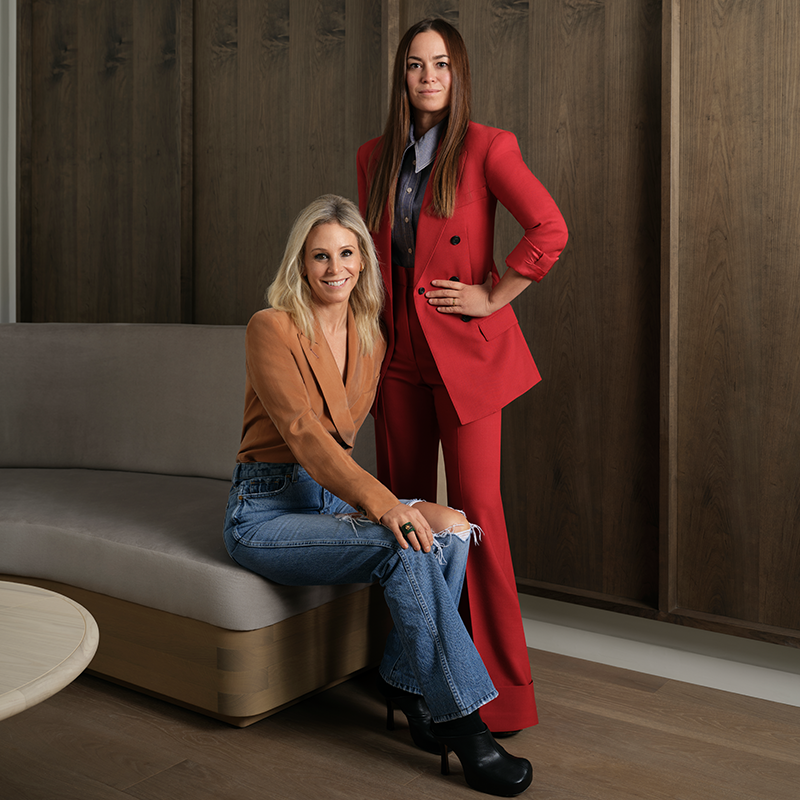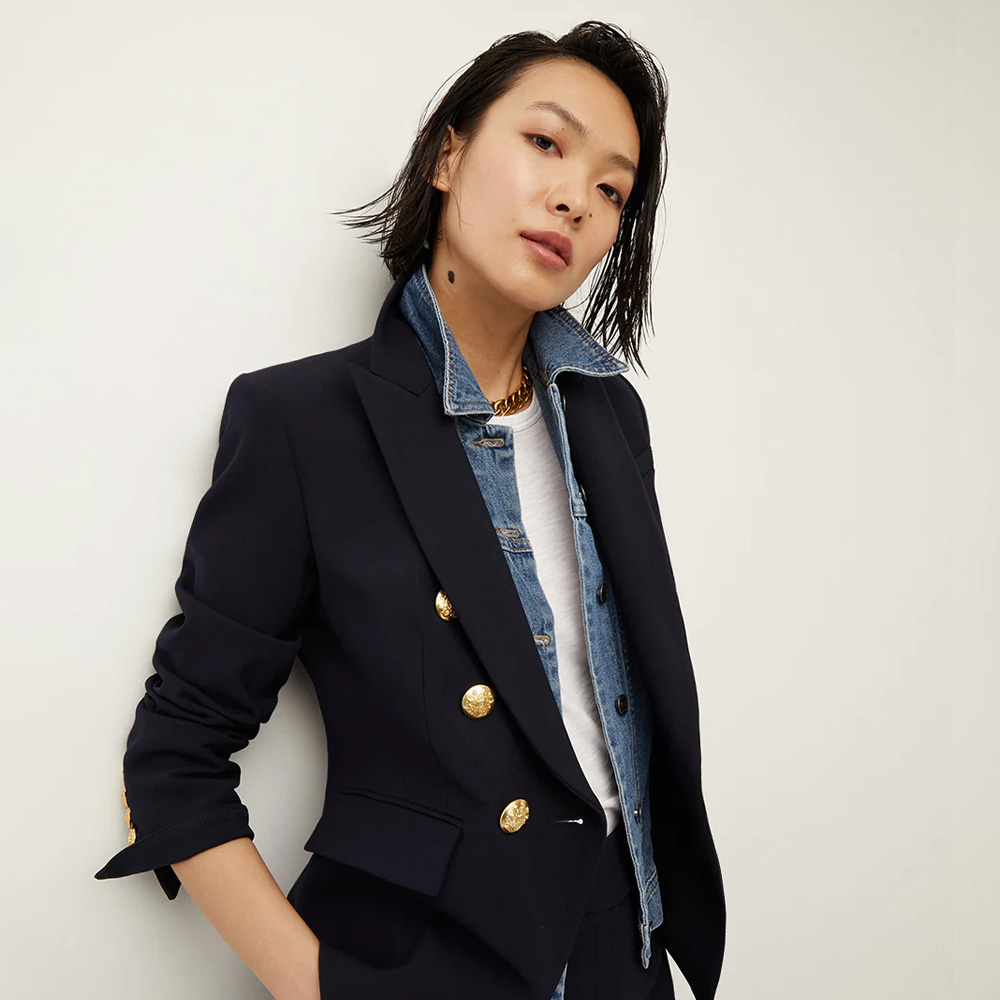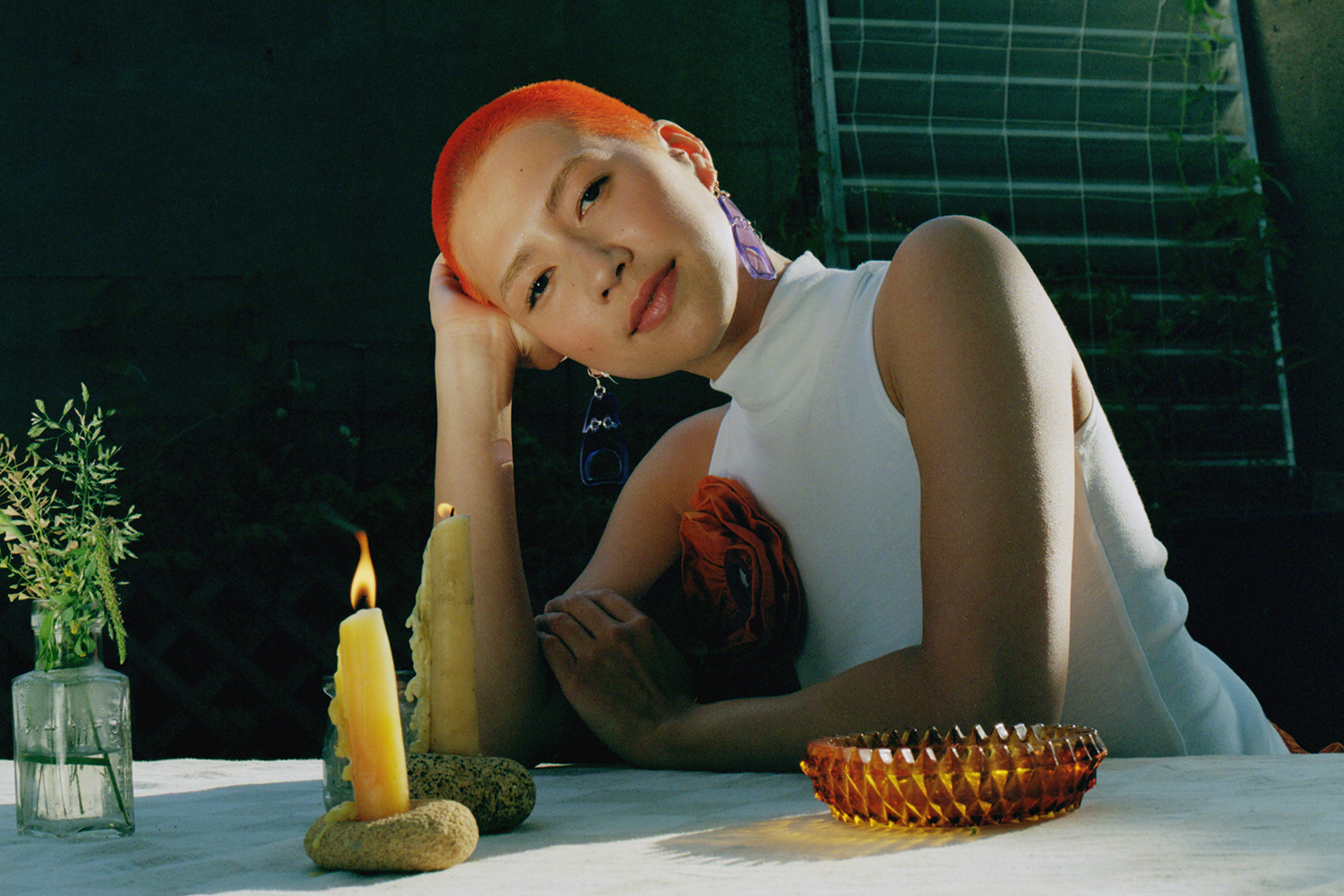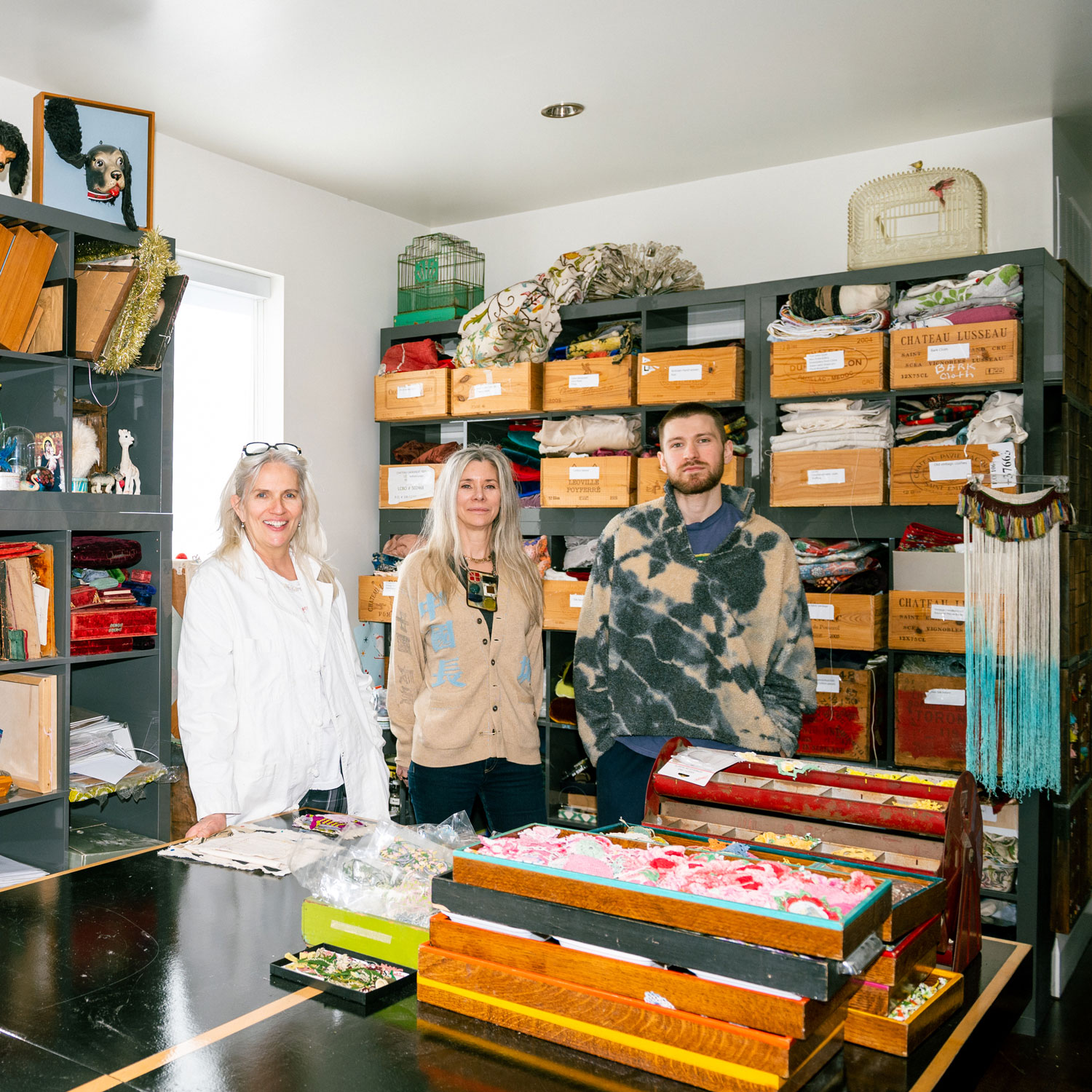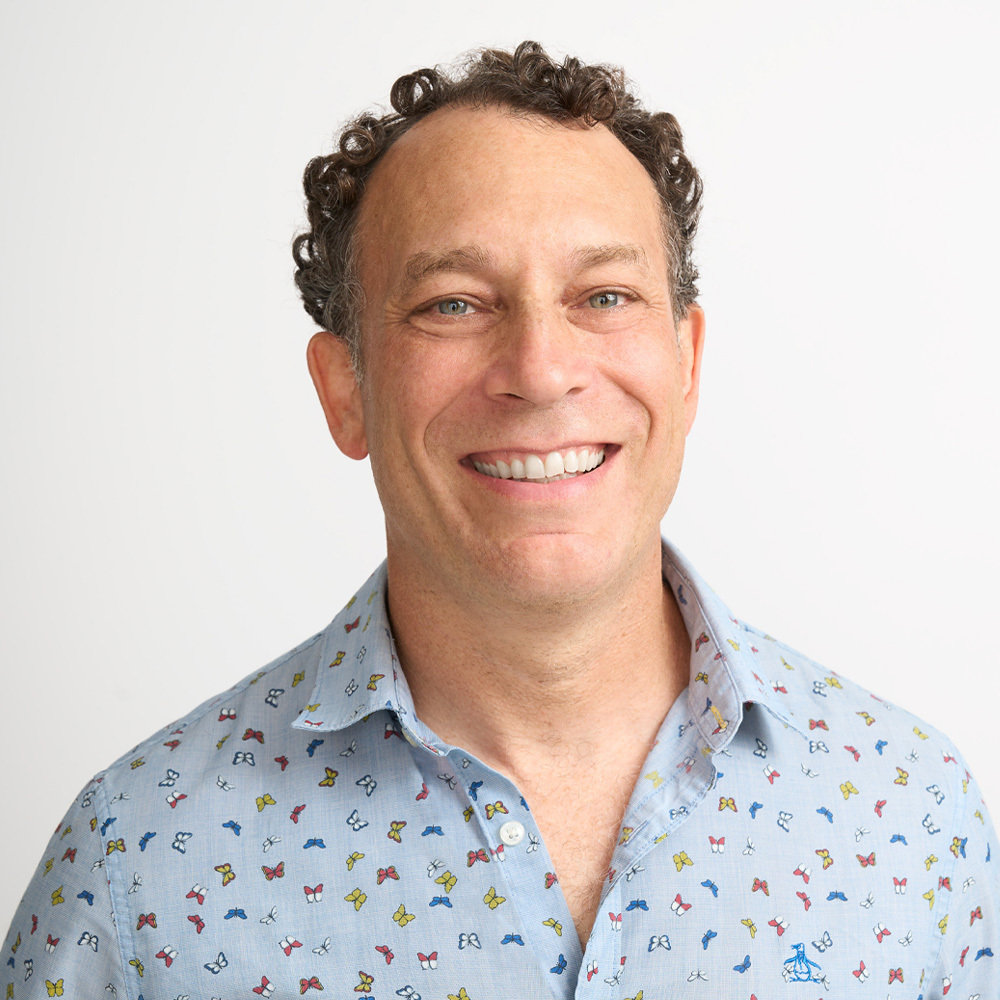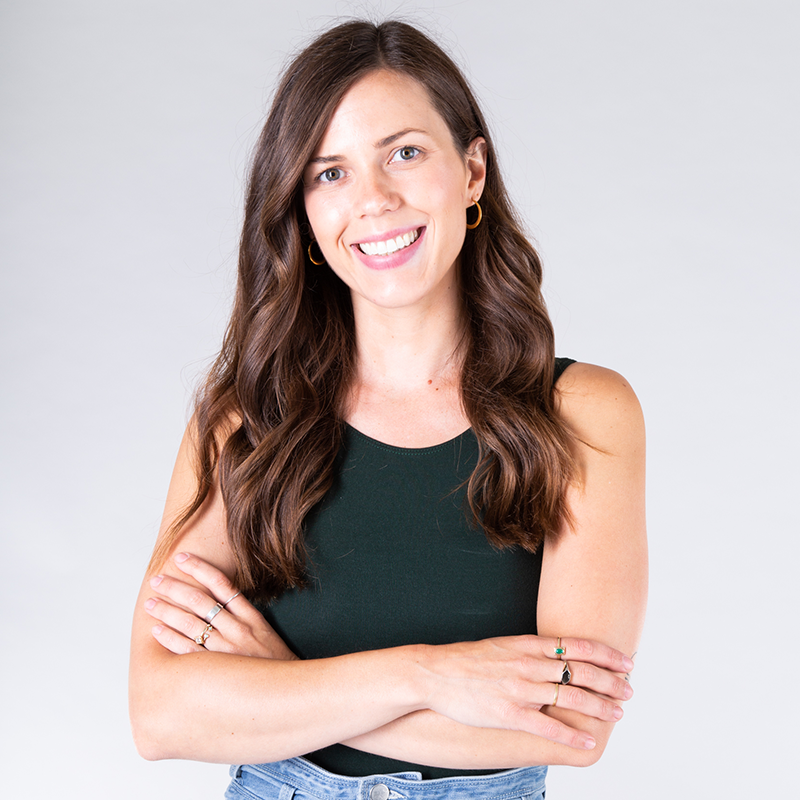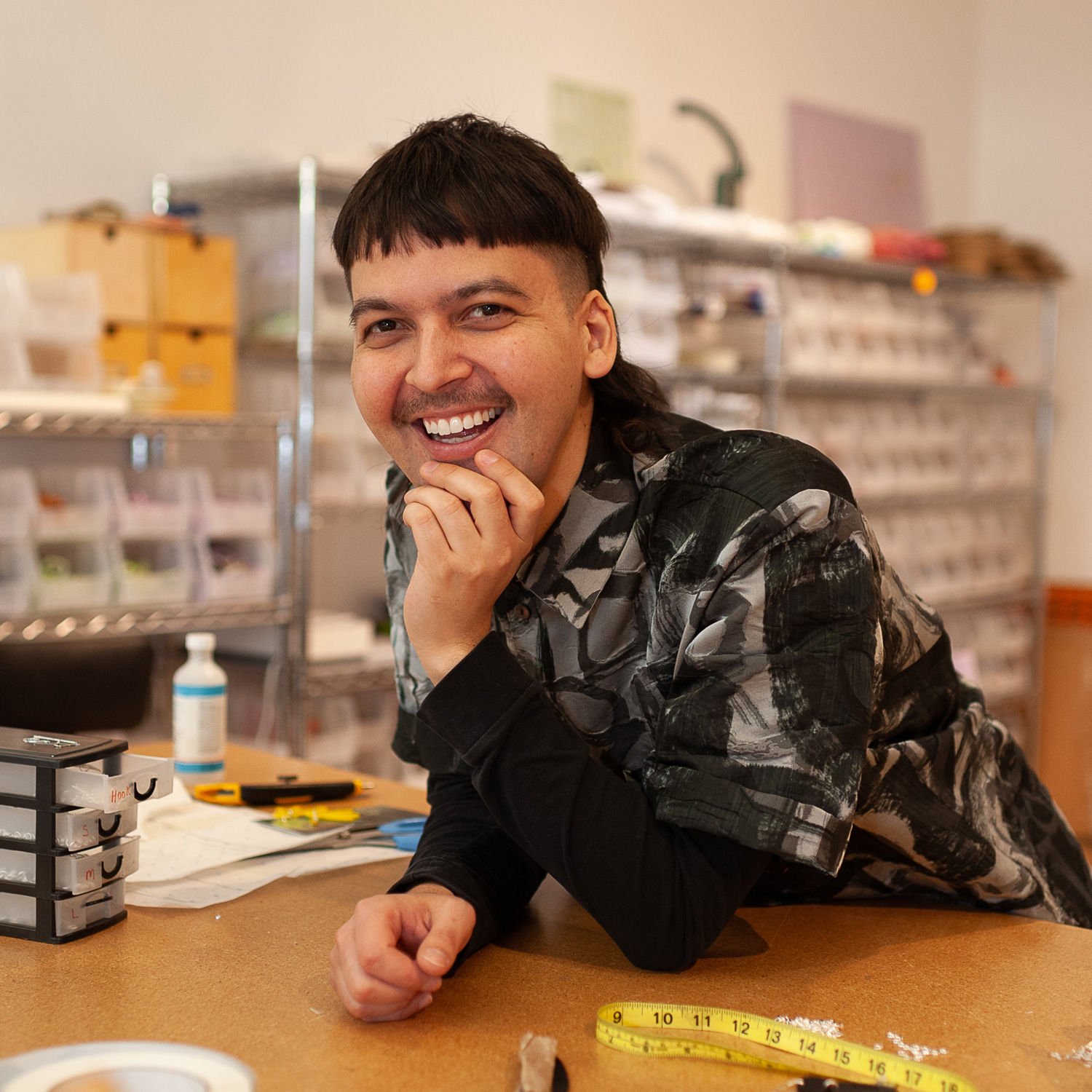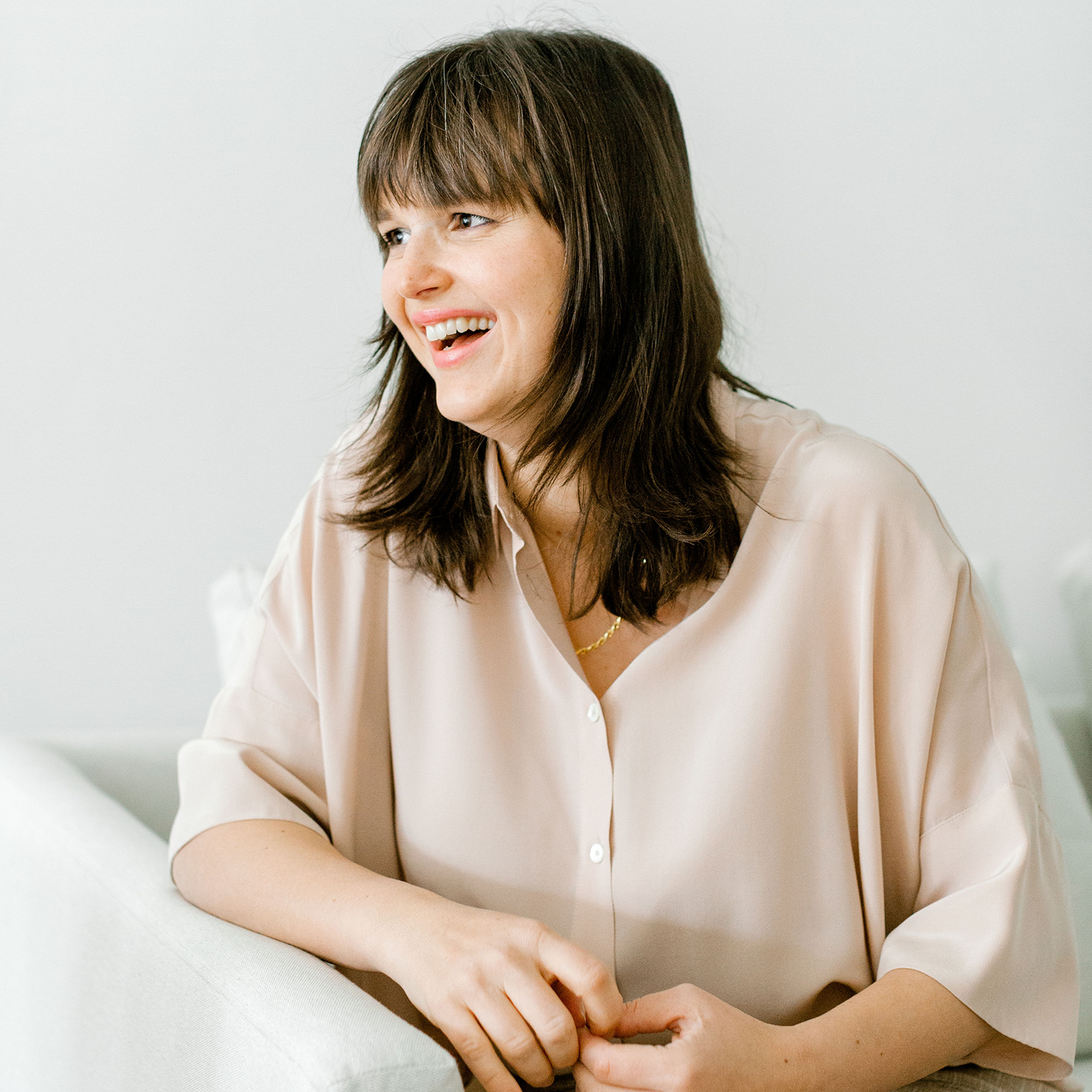‘No One Wants to Spend a Fortune at the Dry Cleaners’: Canadian Designers Are Reimagining Women’s Workwear

Xenia Chen wore the same uniform to her corporate job at a private-equity firm every day for nearly two years: A suit or dress, heels—and tights. And each day, she grew more annoyed. She had to buy an endless supply of pantyhose since they would constantly rip. But her options were either European name-brand pairs that cost $70 a pop, or cheap drugstore options that felt terrible on her skin. Her co-workers were always eager to commiserate about this awful state of hosiery affairs: Control tops were too restrictive, leg length was never long enough and “nude” tights didn’t match their skin tone.
So Chen decided to do something about it.
In 2018, Toronto-based Chen started Threads, a line of high-quality, affordable tights, as a side project. Those watercooler complaints were like gold for Chen; she formulated her products based on feedback from her co-workers and from a survey of 200 people in her network. Chen created tights made with double-covered yarn, meaning that the sewing machine goes over them twice, making them more durable than most pairs on the market. She contoured the control top, lengthened the leg and created numerous shades to match various skin tones. Chen made them less expensive than designer tights too, priced between $20 and $50 a pair. A year-and-a-half after starting Threads, the business was strong enough that Chen made it her full-time gig.
Women’s workwear is a burgeoning sector: The global market size is valued at upwards of US$150 billion as of 2023. The women’s apparel market, overall, is expected to increase by nearly three per cent annually from 2023 to 2027, thanks to a growing population of working women, ever-evolving trends and the segment’s strong spending power. And, as more employees head back to the office, the clamouring for versatile, stylish and practical workwear grows louder.
Chen and her fellow Canadian designers are ready to meet demand. Threads sells tights direct-to-consumer online and offers subscriptions for folks who go through a lot of pairs, like flight attendants. They have a customer repurchase rate of 35 to 40 per cent, and Chen says sales are increasing 200 to 300 per cent year-over-year. Threads recently diversified into men’s tights and nipple covers, and is tackling bricks-and-mortar now, too: In the last year, they started partnering with specialty retailers across North America. “We believe the future of retail is with independent retailers, so we’re doubling down on that this year,” Chen says. “We’d love to expand into Europe in the near future.”
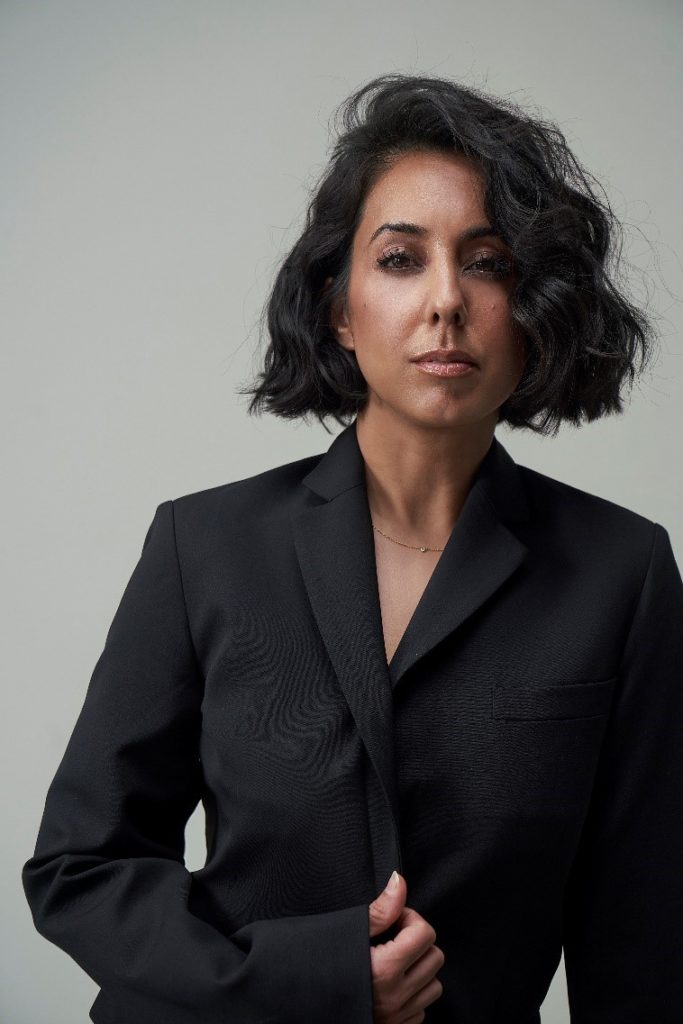
Toronto-based engineer Nina Kharey is another designer reimagining workwear. She launched women’s line Nonie in 2015, selling wardrobe staples like skinny zippered trousers, trendy trenches (including a trench dress worn by Meghan Markle), tailored tees and oversized blouses.
But in early 2021, she realized a new professional need and created Folds, a medical-techwear brand that makes antiviral and antibacterial scrubs from recycled materials—like old rugs and airbags—that are 100 per cent recyclable. Kharey wanted to provide better options for those working on the frontline of the pandemic, and says her garments last twice as long as regular scrubs since they’re made from self-cleaning, durable fabric that requires less washing. “Our growth has been explosive, so keeping up with demand has been an ongoing challenge with having to amp up production so quickly,” Kharey says.
Canada has huge potential to create innovative brands like hers, Kharey says, but the high costs and limited funding opportunities can be a burden for budding entrepreneurs. Canadian designers have long been asking for more support and funding, and outside of Quebec, they still struggle to secure grants allocated to other creative industries like music and arts. That’s why Kharey recently turned to the U.S. to grow her business; she finds there’s more venture-capital opportunities there. Kharey says she had a successful round of fundraising in early 2022, and is starting to work with high-profile U.S. investors as part of a seed round. “Being self-reliant as a country is important, but the support here is weak. It’s no secret people start focusing on other countries and come back to Canada when their ideas have been proven,” Kharey says. “It’s a bit backwards. The government is slow to see it, but the potential for clothing innovation and manufacturing is right here on our own soil.”
Chen agrees that Canada is still a bit of an untapped market—but one with plenty of potential. “It’s tough to find cool women’s workwear, especially at a more affordable price point,” she says. “I also think there is a huge market for workwear that’s made from technical materials that are easy to care for. No one wants to spend a fortune at the dry cleaners!”
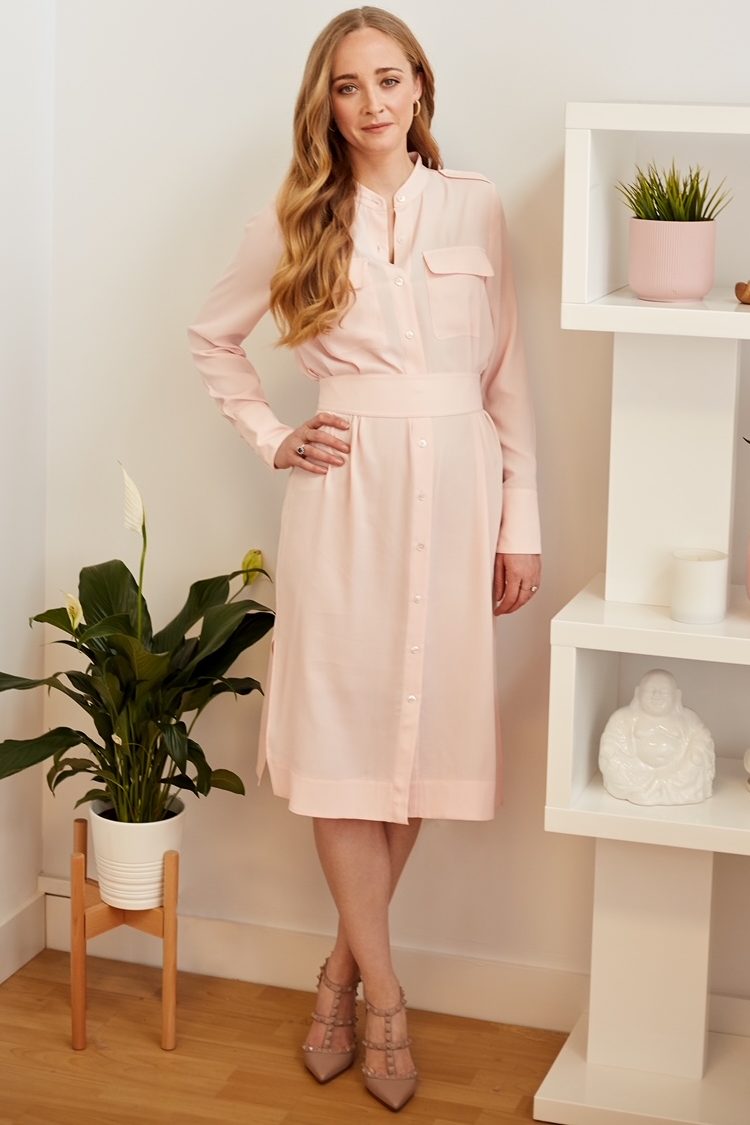
Helping women avoid big dry cleaning bills was the inspiration behind Michelle Shemilt’s workwear brand, Numi. In 2014, the Toronto-based former equity trader created a line of sweat-proof undershirts for women to wear under garments like silk blouses and wool sweaters so they wouldn’t need to be dry cleaned after each wear. Numi undershirts are designed with a technical fabric shield in the underarm that absorbs moisture to banish sweat stains.
Since launching her undershirts, Shemilt has expanded into other workwear must-haves, including moisture-wicking shelf bra camis to avoid breast sweat. In 2021, she debuted sustainable silk blouses, which, she says, are the only silk blouses on the market that are both stain-resistant and machine-washable. “You can spill coffee, wine or juice on it and it will just roll off,” she says. “At the end of the day, you machine wash and tumble dry.”
Easy-to-wear garments are at the heart of Encircled, another Canadian brand making functional-yet-fashionable workwear. A decade ago, Toronto-based founder Kristi Soomer was working 80-hour weeks as a strategy consultant and had little time to find stylish, comfortable clothing that would suit work, travel, socializing and relaxing. She started Encircled in 2012 to address her shopping conundrum. Encircled sells office-appropriate sweatpants and sweatshirts (garments that don’t look like sweats), draped blazers and puff-sleeved dresses in soft cotton.
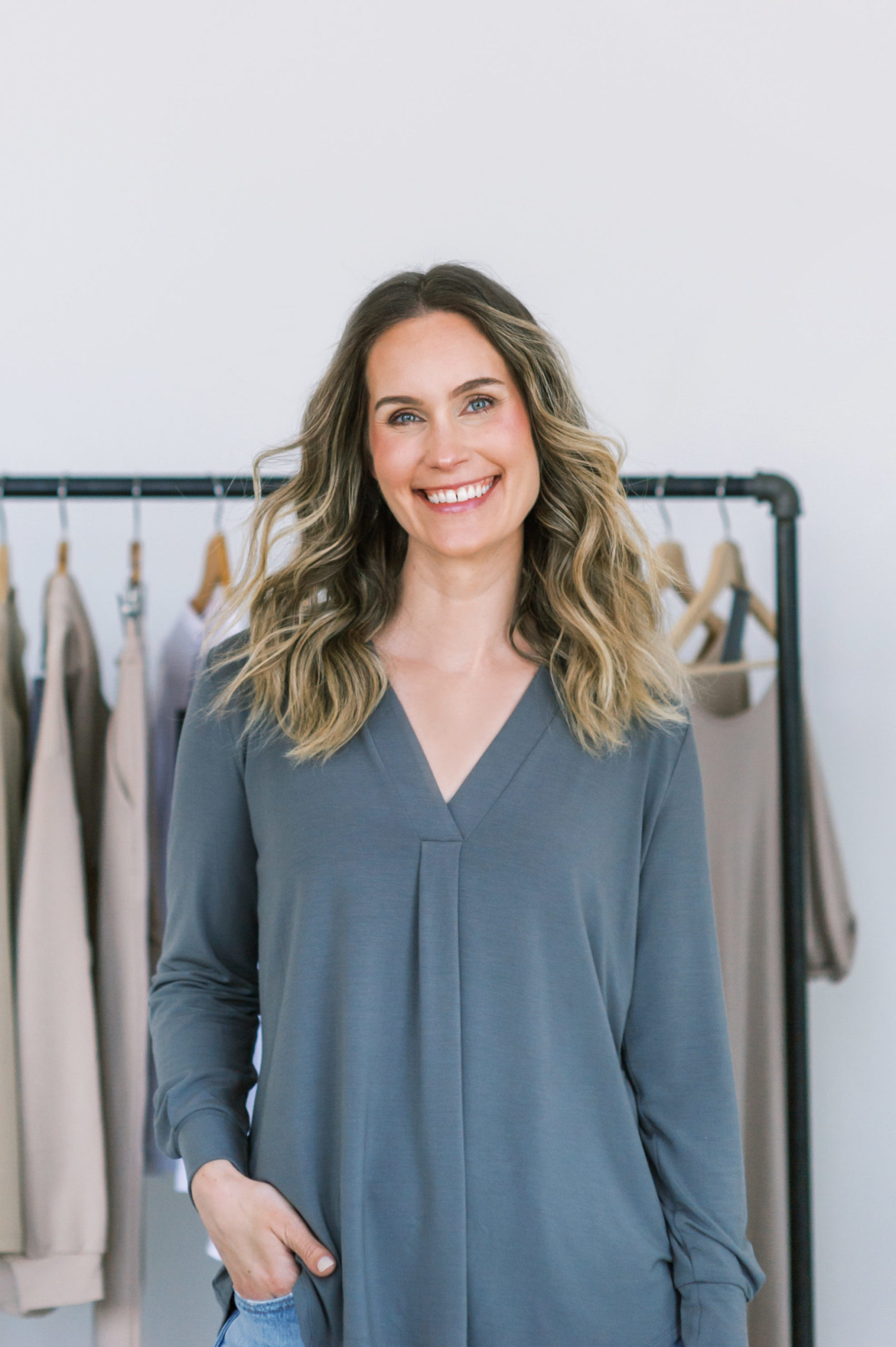
The surest sign Encircled is doing something right? They’ve been knocked off a bunch of times over the years: Their “Dressy Sweatpants” and “Chrysalis Cardi” dress are their most-copied pieces. It’s irksome, but Soomer maintains focus on determining the ever-evolving workwear needs of her clients. One of her most successful recent products was a T-shirt dress. On Instagram, Encircled asked followers what they loved and hated about T-shirt dresses, then designed one based on the feedback. Once it hit their site, it sold out within 24 hours. “The more you can integrate people along the way, and test your product with them, you’ll ultimately make a better product,” Soomer says.
Post-pandemic buying habits might also help bring in more customers. After a few years of living in our pyjamas, Shemilt says, workers realize that getting dressed isn’t just about how we look; it impacts how we feel. More people are reaching for their blouses and dresses again, but what women are looking for in their garments has slightly changed. “There is a need for functional workwear because one pandemic habit we don’t want to give up is clothes that are easy to wear and care for,” she says.
Chen agrees. “We all got our sweatsuit fix in the beginning of the pandemic and people are now wanting to get the best of both worlds,” she says. “They want to be comfortable—but they also want to look good.”

